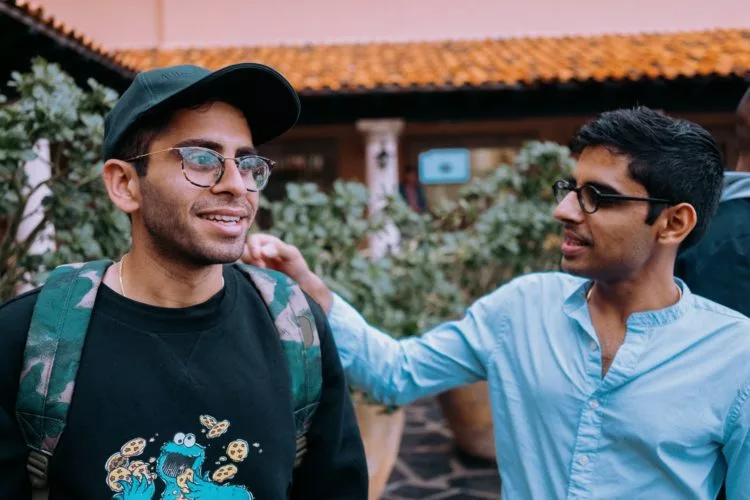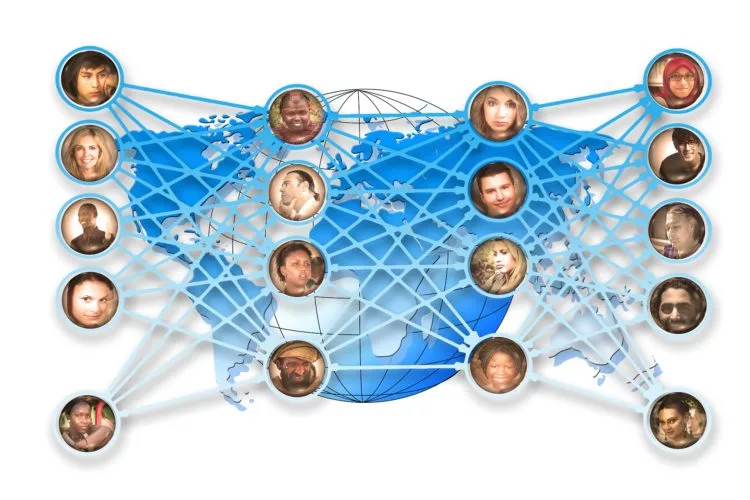About Us
What Is Relational TA?
Relational Transactional Analysis is a term that has evolved in recent years to describe an approach to our work that attracts TA practitioners from many different parts of the world, and from across all four fields of TA; psychotherapy, counselling, organisations, and education.
Over the past twenty five years there has been a significant shift in the transactional, technical, and theoretical emphasis of TA, one which has reflected a similar shift in the wider worlds of psychotherapy and counselling, psychology, education and organisational development, as well as of art and architecture.
In TA this ‘relational turn’ has been represented by a move away from the focus on cognitive insight as the central vehicle of psychological change, to the importance of affective, co-creative, conscious, non-conscious, and unconscious relational interactions as a primary means of growth, change and transformation.
The shift is represented by the work of Novellino (1984, 1990), Moiso (1985), Barr (1987), Erskine (1991, 2001), Shmukler (1991), Woods (1996), Summers & Tudor (2000), Allen & Allen (2000), Cornell & Bonds-White (2001), Hargaden & Sills(2001), Hargaden (2003), Cornell (2001), Lewis (2002), Tudor (2003), A number of these articles were collected together and published by Haddon Press under the title From Transactions to Relations:The Emergence of a Relational Tradition in Transactional Analysis (Cornell & Hargaden, 2005).*
2002 saw the publication of the hugely influential Transactional Analysis: A Relational Perspective (Routledge), by Charlotte Sills and Helena Hargaden.
More recently, Relational Transactional Analysis – Principles in Practice (2010) published by Karnac and edited by Heather Fowlie and Charlotte Sills contains 33 chapters by leading TA authors from around the world, exploring what is means to offer relational TA psychotherapy.
The most recent additions to the relational TA bibliography are Co-Creative Transactional Analysis by Keith Tudor and Graeme Summers (Karnac, 2014)(a chapter of which was explored by the IARTA online colloquium in November 2015) and The Art Of Relational Supervision (Routledge, 2015), edited by Helena Hargaden.
Whilst this relational emergence is reflected in a number of approaches across the theoretical spectrum, and furthermore the therapeutic relationship is widely acknowledged as a key factor in successful psychotherapy outcome, relational ways of being and working are challenged by short-term, solution-focused forms of therapy, and government agendas which promote happiness as an easy and accessible alternative to the existential realities and anxiety of life.
In this psychological, educational, organisational and political context, a number of relational TA practitioners and theorists came together to form the International Association of Relational Transactional Analysis (IARTA) which was founded and launched in 2009 to promote the development of relational TA.
As above so below. Just as the world is becoming increasing complex – and, arguably, chaotic – so this is reflected in increasingly complex psychological processes. Most if not all new ideas emerge from a need to understand something that cannot be explained or understood within what already exists.
In TA, as in other approaches, much writing in the last twenty years has alluded to the fact that as practitioners we have been struggling to understand, plan and contain the work we are doing with increasingly complex client presentations. The relational framework we and others have been developing has grown out of and has been energised by this perception and need.
Relational TA Principles
Relational TA is interested in those processes and methodologies that appreciate, contextualise, and seek to understand and engage with the language and power of the non conscious and the unconscious, as well as that of the conscious world. Within this, relational TA practitioners can and do come from any and all approaches within TA, but we operate within what Mitchell and Aron (1999, xii) refer to as a ‘subculture’, which shares a ‘particular set of concerns, concepts, approaches and sensibitlites’ that unify the practitioners, not ‘by design’ but because the ‘subculture has struck deep common chords among current practitioners and theorists’. Thus, relational TA represents and reflects different traditions and practice with regard to working with clients, with roots in psychodynamic, object relations, and humanistic thinking.
Whatever our differences, we hold a number of principles to be self-evident:

The centrality of relationship.
Thinkers as diverse as Sigmund Freud and Carl Rogers placed relationship at the very heart of what it is to be human; suggested that a person’s learned patterns of relating are at the root of his/her psychological problems; and proposed that paying attention to these patterns as they emerge between client and practitioner is likely to change them – both within that relationship and outside of it.

The significance of subjectivity - and of self-subjectivity.
In different ways we emphasise relationship, in all its forms: -With the self (subjective or intrapsychic), that is, how I think and feel about myself; -With the other (introjected objects), that is, how I think and feel about the other; and -With the intersubjective or inter-active (interactions, enactments and interpersonal behaviour), that is, what happens when we get together. This is particularly significant as we recognise that providing different relational experiences from those that are expected and/or longed for by the client can be extremely exacting – for both parties. As a result, the practitioner, as well as the client, is called upon to get to know, to extend or expand, and to challenge and change her/himself in new ways. This is crucial in that the practitioner uses the pull and push of his/her own subjective experience (or countertransference) with the client to inform when and what intervention or way-of-being-with will best enhance the client’s knowledge of self, other, and the world.

The significance of non conscious and unconscious patterns, as well as conscious ones.
As practitioners we place different and differing emphasis on these three realms of relational patterns that shape all our experiences of ourselves and of ourselves with others. We agree with DeYoung (2003, p. xvii) view that the ‘unconscious isn’t a place or thing; it is a self-perpetuating patterning or organising of self-in-relationship that remains out of the person’s awareness but shapes all of his self- experience.

The importance of context.
Relational practitioners recognise and account for the fact that personal experiences are embedded in political situations, contexts, and realities and acknowledge these as possible sources or causes of psychological difficulties. In reality, this is likely to involve the therapist in consciousness raising, or ‘demystification’ (Steiner and Wycoff1974); challenging standard definitions of, for example, identity and mental illness.

The importance of experience.
The most profound change happens through experience (as distinct from cognitive insight) and, most powerfully, through relational experiences that both embody and enact different meanings from those that relationships once did for the client. It is in this way that relational approaches are reparative.

The reality of the functioning and changing adult.
In relational TA the client is seen as and is treated very much as an adult who is capable of a reciprocal, and mutual (albeit asymmetrical) relationship with the practitioner. This frame of reference challenges the familiar parental paradigm and maternal metaphor in which the practitioner acts as a temporary replacement for unsatisfactory parents, there to meet the client’s unmet relational needs. Instead, we emphasise the ‘activity of relatedness’ and a ‘love of truth (Cornell & Bonds-White, 2001) where both parties are willing to acknowledge reality about themselves, which develops as a result of increasingly empathic and co-creative relating.

The importance of curiosity, criticism, and creativity.
We emphasise a freedom to learn and a freedom to practice. Essential to this is curiosity, critical reflection, and creativity. As Cornell and Bonds-White (2001/2005, p. 150) put it: We further suggest that it is the therapist’s and client’s mutual curiosity and exploration of an individual’s experience that is ultimately curative rather than the alleviation of the psychic pain that developed because of these [negative childhood] experiences.

The importance of uncertainty.
In the search for meaning, we think that certainty is neither possible nor necessarily desirable. When we recognise that the meanings we have or will arrive at have been shaped, co-created, and filtered through our individual social and cultural contexts, and when we shift from an individual perspective to a multiple and social perspective, we add richness, complexity, and uncertainty that enhances this endeavour. In line with this, ‘both/and’ thinking is valued over ‘either/or’ thinking, as is the tension of holding what Benjamin (2002) refers to as ‘complementary oppositions’.

The importance of engagement.
This principle and concept centers on our thinking that the practitioner is – and needs to be – an active participant in the work, and is not and cannot be a neutral observer on him/herself, the other, or his/her work. This locates relational TA and relational work in Stark’s (2000) terms, as a ‘two-person psychology’ rather than a ‘one-person’ approach.
The client is not there to be done to, nor is the practitioner a benign provider of what was once missing for the client. Both parties are actively involved in the process of finding new and more authentic ways of relating with each other. Benjamin (1995, p. 3) suggests that relational perspectives may best be characterised as ‘an enquiry into the questions of common concern that come to the fore as a result of the adoption of a two-person model.
Interested in Relational TA? Become a member now
Receive access to valuable content


